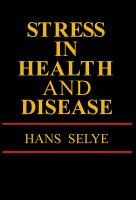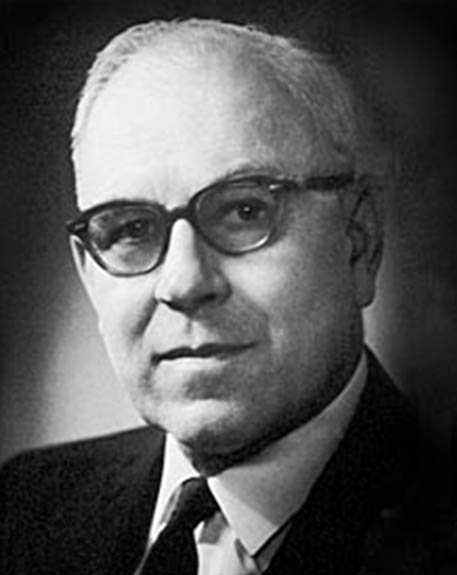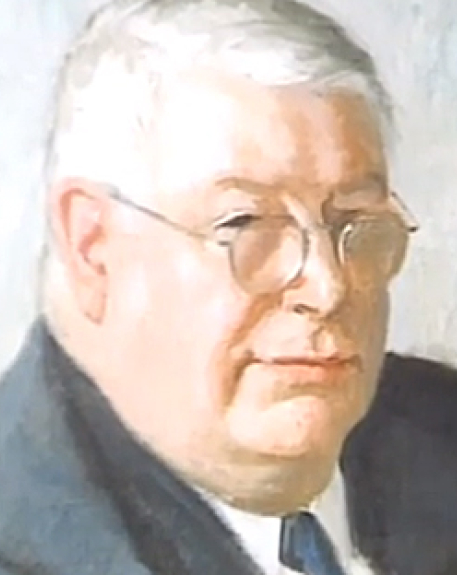2006 INDUCTEE Hans Selye, MD PhD Hormones
January 26, 1907
(Vienna, Austria)
October 16, 1982
MD: German University of Prague (1929)
PhD: German University of Prague
DSc: McGill University
1976: Golden Plate Award, American Academy Achievement
1968: Companion of the Order of Canada
See All AwardsAwards & Honours:
1976: Golden Plate Award, American Academy Achievement
1968: Companion of the Order of Canada
Fellow of the Royal Society of Canada
Killam Award
The International Kittay
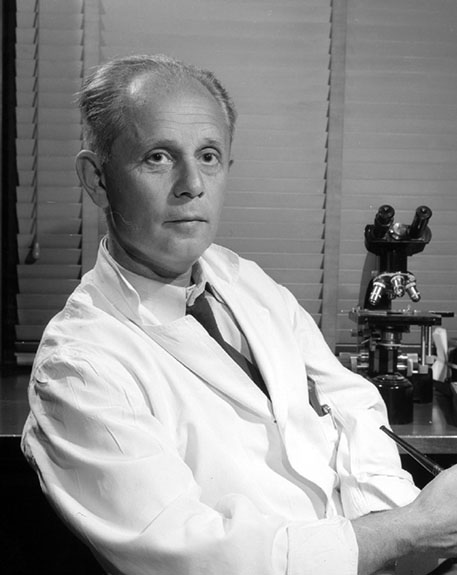
Introduced the concept of stress to medical research and treatment
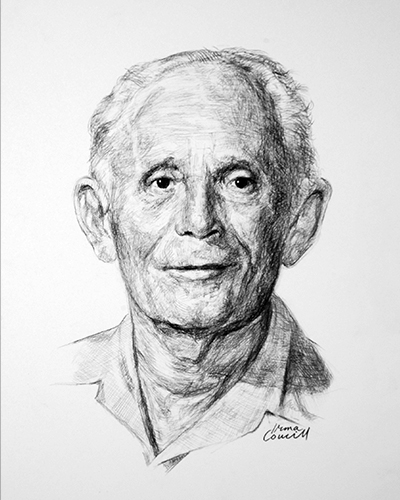
The father of biological stress research
Dr. Selye’s initial discovery of the stress syndrome was based on the demonstration that the body nonspecifically responded in virtually the same way to various innocuous stimuli or stressors. During his medical studies, he had previously observed that patients with various illnesses appeared to display the syndrome of being sick. One of his greatest contributions was the demonstration of the stress triad (gastrointestinal ulceration, thymico-lymphatic atrophy and adrenal hypertrophy) and of the role of the hypothalamus in stimulating the hypophysis, which induced the adrenals to produce corticoids. These descriptions led to the discovery of the steroids ACTH, GRH, somatostatin and other hypothalamic and hypophyseal releasing factors and hormones. Collectively these discoveries described the body’s internal stress-processing mechanism.
Key Facts
Revolutionized our understanding of the causes and mechanisms of disease with his theories on the roles of organic responses to emotion, illness and injury
Advanced his theory of “General Adaption Syndrome” that suggests stress plays a role in every disease
Pioneered concepts of adaptation energy, stress hardiness, post traumatic growth, and codes of behaviour that were protective of life stressors.
Collaborated in designing a conceptual model for stress education and intervention that was multidisciplinary holistic and integrative
Published more than 1,700 articles and 39 books on stress and has been cited in over 362,000 publications
Became an Honorary Fellow of 69 scientific societies
Professional timeline
Impact on lives today
While Dr. Selye worked strictly with animals and never saw a patient, his research created a body of medical knowledge that continues to have a profound impact today. His theory of General Adaptation Syndrome allows physicians to better understand, predict, and treat symptoms of stress including ulcers, high blood pressure and heart attacks. Moreover, his concept of stress has developed into a flourishing field of research that has expanded our knowledge of how stress influences numerous biological responses. In addition, patients who suffer from hypertensions can feel the impact of his discovery of the anti-inflammatory effects of steroids. Importantly, Dr. Seyle not only provided the scientific foundation for future development, he also mentored the next generation of stress researchers. Among these former students are Nobel Prize Laureate Roger Guillemin and Canadian Medical Hall of Fame Laureate Claude Fortier.
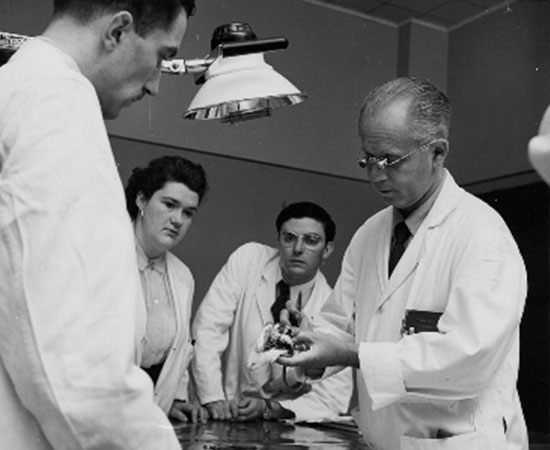
2006
-
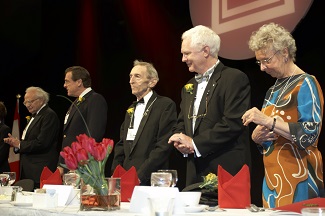
Hans Selye posthumously inducted into the Canadian Medical Hall of Fame
Edmonton, Alberta
-
The International Institute of Stress was founded
HormonesDr. Selye also established the Hans Selye Foundation in the same year.
-

Dr. Hans Seyle published "Endocrinology"
HormonesThis textbook remained a reference classic for many years.
-
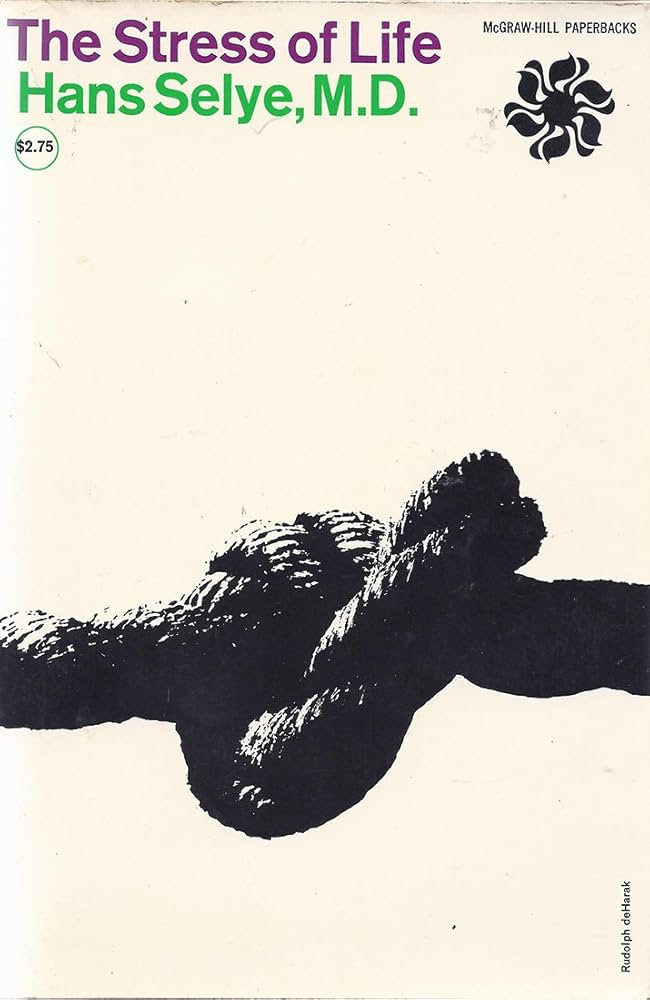
"The Stress of Life" was published
HormonesThis work, along with "Stress Without Distress" (1974) became international best sellers. They also represent Dr. Selye’s commitment to public education regarding practical applications of stress research.
-
Dr. Hans Selye published “Stress and Disease” in Science
HormonesIn this article, he proposed that deficient host defense due to abnormalities of neuroendocrine factors may lead to disease.
-

Dr. Seyle transferred to the Université de Montréal.
Leadership in Organizational DevelopmentAt UM, he founded and became Director of the Institute of Experimental Medicine and Surgery. He held this position until his retirement in 1977.
-
Dr. Hans Seyle presented his concept of stress in the science journal, Nature
HormonesIn the article, he described stress as “a syndrome produced by diverse noxious agents.” He also included a description of General Adaptation Syndrome and its three stages of alarm, resistance and exhaustion.
-
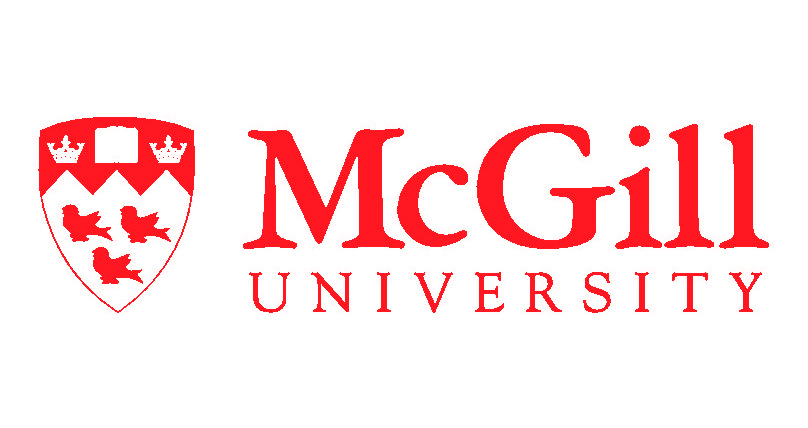
Dr. Seyle came to Canada to carry out research at McGill University
Health and Medical Education & Training, HormonesHe studied under the direction of J.B. Collipp who discovered the Parathyroid hormone. The following year, Dr. Seyle was recruited to McGill as an Assistant Professor.
1927
He had an incredible curiosity coupled with a thirst for knowledge.

